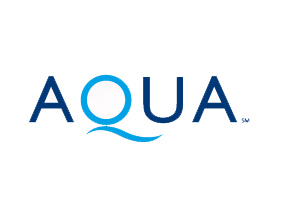 By Heather Michon, correspondent
By Heather Michon, correspondent
With just weeks to go before public hearings on the latest round of proposed water rate increases, Aqua Virginia invited customers to an information session Thursday (March 22) at Sts. Peter and Paul Catholic Church that exposed the tensions between the company and residents over high water bills.
About 40 Aqua customers listened quietly as Aqua Virginia President John J. Aulbach gave a presentation outlining some of the $3.3 million in investments and upgrades to the Lake Monticello water system since the last round of rate increases in 2015. He said the company had invested around $27 million in the system since acquiring it in 2007.
Last year, the company filed with the State Corporation Commission (SCC) for a 5.4-percent increase in water rates and an 11-percent increase in wastewater rates, but the passage of the tax reform bill earlier this year dramatically reduced the corporate tax rate. “It was important to me to pass that back to the customers,” said Aulbach.
On Jan. 8 the SCC ordered Aqua, along with 11 other utilities with pending rate increases, to realign its requests to “ensure that customers of Virginia’s major public utilities receive the benefits of the corporate tax cut.”
Aqua dropped the requested wastewater increase and cut the water increase almost in half. As a result, an average customer using 3,200 gallons of water per month will see a $2.86 rise in the monthly bill.
Not taken off the table was the request for a Water and Wastewater Infrastructure Service Charge (WWISC), which the company wants to use to recover the cost of investments.
Aulbach described it as a “small” annual charge that could keep customers from seeing major increases every three years. “We’re hopeful that we could spread out to a four or five year rate cycle,” he said.
Aqua has requested capping the charge at 10 percent of the average statewide monthly bill. The SCC denied Aqua’s previous request for a WWISC.
During the question-and-answer period after the presentation, it was clear that not even the sharp reduction in the proposed rate increase cooled the audience’s anger over Aqua’s high cost of service.
“Flushing my toilet is like flushing my Social Security check down the drain,” said one resident, who said her $85 to $90 monthly bill was a real burden on a fixed income.
Private water companies typically charge significantly higher rates than municipal water systems.
According to the rate table for municipal Albemarle Water Authority, a customer using 3,000 gallons of water could expect to pay around $46 per month.
By comparison, an Aqua customer using 3,000 gallons would pay around $117.
Aulbach tried to assure the audience that, while Aqua is a for-profit company, the SCC demands rates be priced at “the true cost of service.” Municipalities, he said, can raise money and shift funds around in ways that private companies cannot.
As the questions continued, it was clear there is little that customers can do to lower the cost of service.
One resident noted that before 2007, Lake Monticello residents weren’t required to pay sewer charges on water used outside and asked if the company would consider returning to that structure, perhaps using winter consumption rates as a baseline.
Aulbach didn’t rule it out, but said the SCC was unlikely to approve such a big a change to the company’s tariff.
A similar question about reducing wastewater charges by not using garbage disposals was also met with little enthusiasm. It would reduce the amount of solid waste the treatment plant has to filter out, but both Aulbach and the local plant manager were skeptical it would lead to reduced operational costs.
Several customers also voiced concerns about the quality of the water, with one saying it was “unfit for pigs.” Complaints ranged from bad odor and taste to black chunks coming out of the faucets to discoloration of tubs and toilets.
Aulbach asked people to report these complaints to customer service, saying that it’s often a matter of flushing to the lines to remove sediment that collects in the system. “I really deeply care about water quality,” he said.
The price of offering service to the Lake Monticello system is lumped in with costs associated with other Aqua systems throughout Virginia. In theory, adding to the customer base through the acquisition of other water systems reduces the burden on customers—where “everybody is helping pay for everybody else,” in Aulbach’s words.
In reality, Aqua’s strategy of growth through acquisition includes taking over older or failing systems that require considerable investment to keep in operation, according to the company’s 2016 annual report. The money to bring these systems up to par comes from customers.
Ida Swenson, one of the most vocal opponents to the rate increases, summed it up: “We’re the ones that are paying for these things. Not you.”




